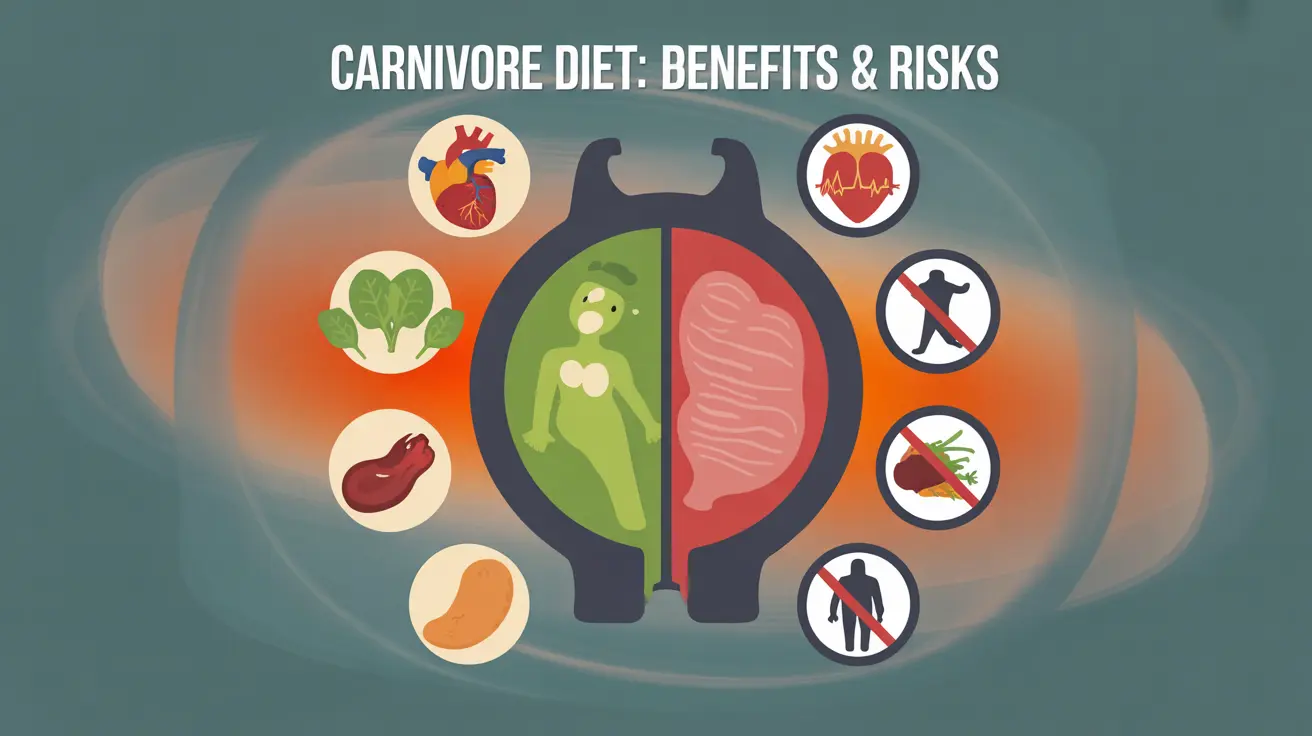The carnivore diet has gained significant attention in recent years as an extreme eating pattern that consists entirely of animal products. This controversial dietary approach eliminates all plant-based foods, raising important questions about its safety, effectiveness, and potential health implications. As more people consider this restrictive eating pattern, it's crucial to understand both its reported benefits and significant risks.
This comprehensive guide examines the scientific evidence behind the carnivore diet, exploring its impact on various aspects of health and addressing common concerns about its long-term sustainability.
Understanding the Carnivore Diet and Its Impact on Health
The carnivore diet consists exclusively of meat, fish, eggs, and some animal-based products like butter. This extreme elimination diet excludes all plant-based foods, including vegetables, fruits, grains, nuts, and seeds. While proponents claim various health benefits, the diet's restrictive nature raises significant medical and nutritional concerns.
Potential Health Risks and Concerns
Nutrient Deficiencies
Following a carnivore diet can lead to several nutritional gaps, particularly in:
- Vitamin C
- Fiber
- Various antioxidants
- Plant-based minerals
- Beneficial compounds found only in plant foods
Digestive System Impact
The complete absence of dietary fiber can significantly affect digestive health, potentially leading to:
- Constipation
- Changes in gut microbiome diversity
- Increased risk of gastrointestinal issues
- Altered bowel movement patterns
Cardiovascular Health Considerations
The high intake of saturated fats and cholesterol from animal products raises valid concerns about cardiovascular health. Research suggests that excessive consumption of red meat and processed meats may increase the risk of heart disease and affect cholesterol levels negatively.
Special Population Considerations
The carnivore diet poses particular risks for certain groups:
- People with kidney disease
- Individuals with diabetes
- Those with existing cardiovascular conditions
- People with digestive disorders
Reported Benefits and Scientific Evidence
While some individuals report positive outcomes, it's important to note that scientific research on the carnivore diet is limited. Reported benefits include:
- Weight loss
- Reduced inflammation
- Improved mental clarity
- Better blood sugar control
However, these benefits lack substantial scientific validation through controlled studies, and many may be attributed to the elimination of processed foods rather than the diet itself.
Frequently Asked Questions
What are the potential health risks of following a carnivore diet long term?
Long-term risks include nutrient deficiencies, particularly in fiber and vitamin C, potential cardiovascular issues from high saturated fat intake, and possible kidney stress from excessive protein consumption. The diet may also negatively impact gut health and increase the risk of certain cancers.
Can the carnivore diet lead to nutrient deficiencies and digestive problems?
Yes, the carnivore diet can lead to significant nutrient deficiencies, especially in vitamins and minerals primarily found in plant foods. The lack of fiber can cause digestive issues, including constipation and altered gut microbiota composition.
How does the carnivore diet affect cholesterol levels and heart disease risk?
The high intake of saturated fats and cholesterol from animal products can raise blood cholesterol levels and potentially increase heart disease risk. Regular monitoring of cardiovascular health markers is crucial for individuals following this diet.
What are the reported benefits of the carnivore diet, and are they supported by scientific research?
While some people report benefits like weight loss, reduced inflammation, and improved mental clarity, these claims lack substantial scientific validation through controlled studies. Most evidence is anecdotal, and more research is needed to confirm these potential benefits.
Is the carnivore diet safe for people with kidney issues or diabetes?
The carnivore diet may be particularly risky for people with kidney issues due to its high protein content. For diabetics, while some report improved blood sugar control, the diet's long-term effects on insulin sensitivity and cardiovascular health remain concerning. Medical supervision is essential for these populations.




